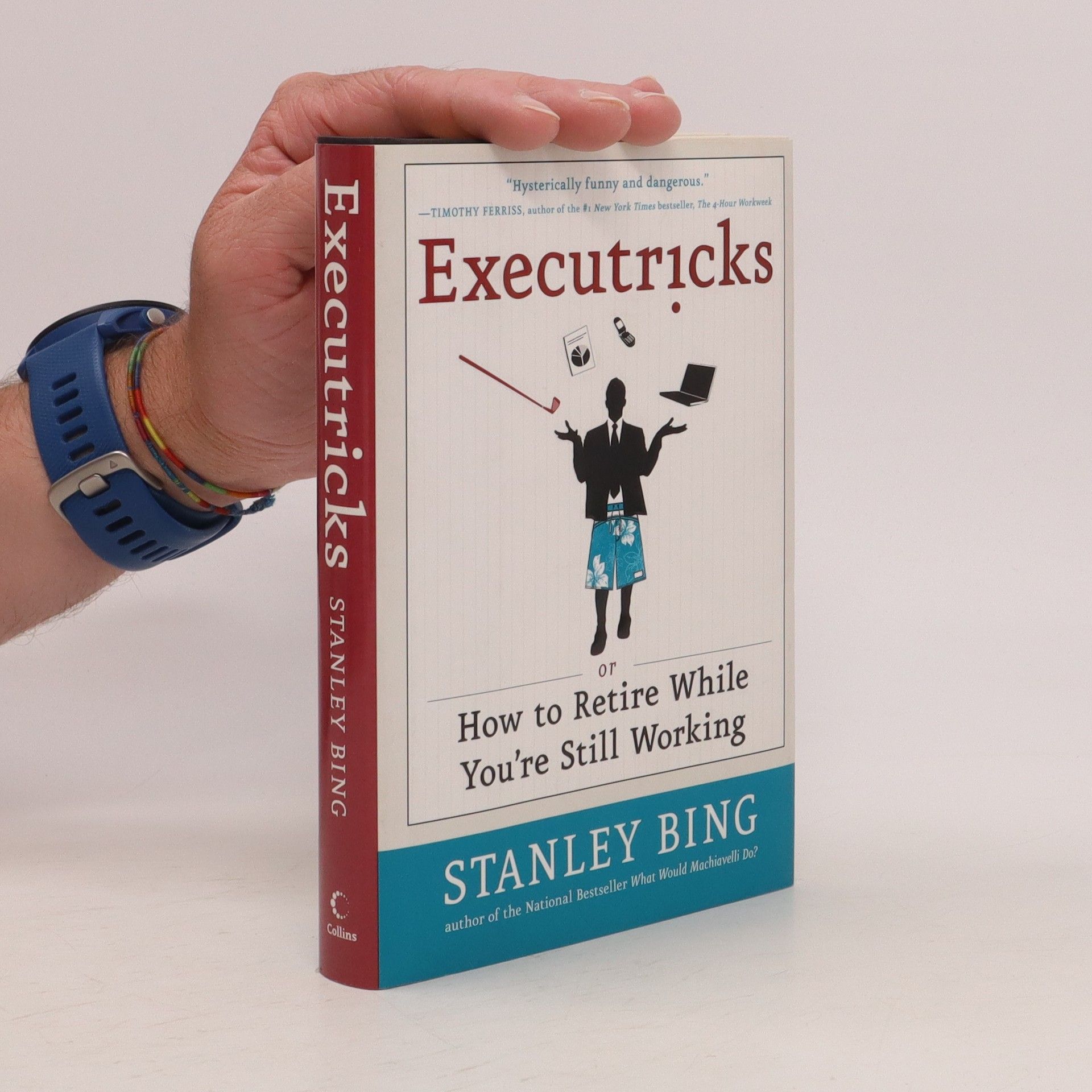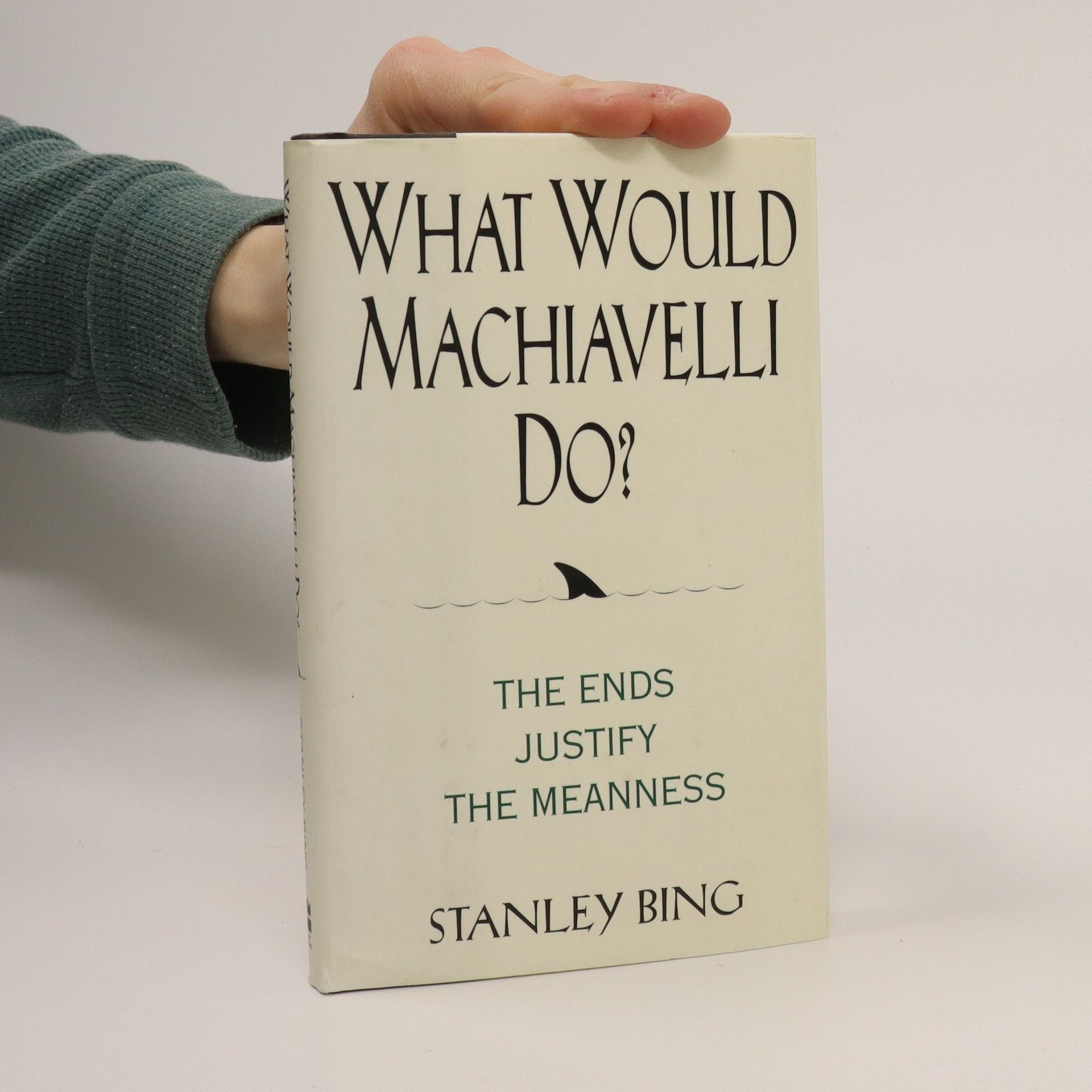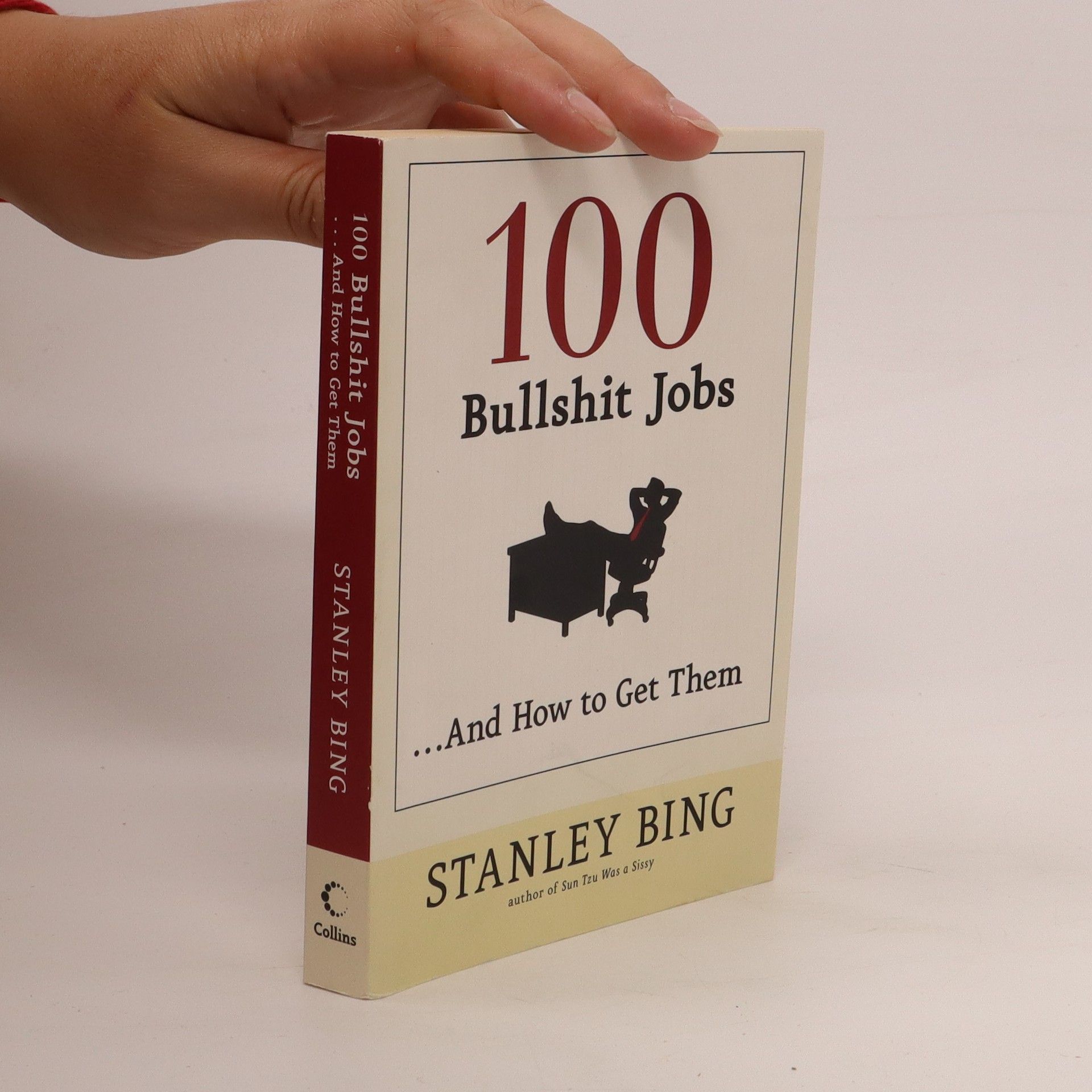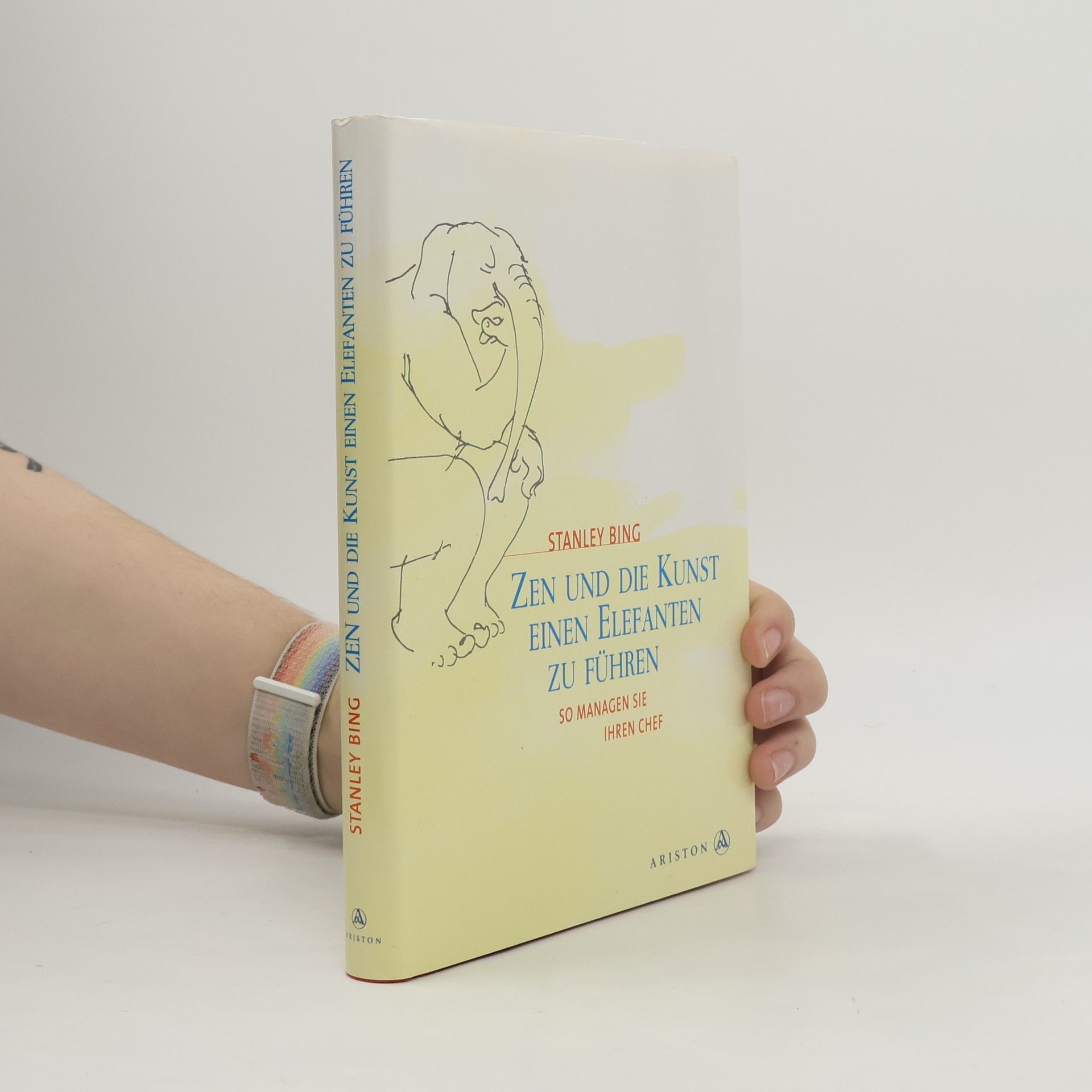What do being a feng shui advisor, marketing consultant, and vice president of the United States have in common? The inimitable Stanley Bing presents a tasteful pile of these and other bullshit jobs, and explains how to snag one for yourself. From bestselling author and business guru Stanley Bing comes an indispensable guide for the contemporary working person—specifically, a worker who is ambitious, greedy, and lazy. In his helpful, witty, straight-shooting style, Bing, who based his entire career and several bestselling books on his own very special brand of bullshit, guides the reader through a plethora of bullshit jobs that pay well and demand very little knowledge or effort. Walmart greeters, executive headhunters, aromatherapists: The people lucky enough to have secured this type of bullshit employment are everywhere, in virtually every field—from ayurvedic healing to zoo management. Bing’s handy reference explains the myriad benefits of such bullshit ways to earn a living, and details steps readers should take to land a bullshit job of their own.
Stanley Bing Boeken
Stanley Bing is een gevierde auteur wiens werk meesterlijk de kruising verkent tussen scherpe, praktische bedrijfsstrategie en bijtende satire. Zijn geschriften duiken in de complexe dynamiek van macht en pathologie, en weerspiegelen vaak op een vooruitziende blik de hedendaagse maatschappelijke landschappen. Met een scherp oog ontleedt hij de redenen waarom minder aangename personages soms meer succes behalen dan hun deugdzamere tegenhangers. Bing's kenmerkende stem combineert inzichtelijke analyses van de zakenwereld met een wrang, humoristisch perspectief, en biedt lezers een unieke lens om zowel het zakelijke als de menselijke natuur te beschouwen.






How did the rich and powerful individuals who move the earth get where they are today? Are they smarter? Faster? Better looking? Certainly not. Some are even short and ugly. What, then, is their edge? The answer is simple: they're meaner. That's all. And if you want to get where they're going, you'll be meaner, too. The good news is that once you get started, it's easy. Walking in the steps of the Florentine master, Stanley Bing will show you how to be all the Machiavelli you can be. How to beat people who are smarter than you are. How to make other people cringe and whimper when you enter a room. How to get what you want when you want it whether you deserve it or not. Without fear. Without emotion. Without finger-wagging morality. One scalp at a time. They do it. You can too. What Would Machiavelli Do? is more than a road map for people who want to get to the top and stay there. It's a way of life you can use at home as well as at the office. A way of seeing other people from 50,000 feet--as teeny-tiny ants you can squish. A simple, detailed plan for those with the courage to leave kindness and decency behind, to seize the future by the throat and make it cough upmoney, power and superior office space. Some books are not for everybody. This one is. So start reading. Or get out of here. You're beginning to get on our nerves.
Executricks
- 208bladzijden
- 8 uur lezen
Sun Tzu Was a Sissy
Conquer Your Enemies, Promote Your Friends, and Wage the Real Art of War
- 240bladzijden
- 9 uur lezen
A hilarious and tough-minded guide to winning the war of contemporary life. We live in a vicious, highly competitive workplace environment, and things aren′t getting any better. Jobs are few and far between, and people aren′t any nicer now than they were when Ghengis Khan ran around in big furs killing people in unfriendly acquisitions. For thousands of years, people have been reading the writings of the deeply wise, but also extremely dead Chinese philosopher Sun Tzu, who was perhaps the first to look on the waging of war as a strategic art that could be taught to people who wished to be warlords and other kinds of senior managers. In a nutshell, Sun Tzu taught that readiness is all, that knowledge of oneself and the enemy was the foundation of strength and that those who fight best are those who are prepared and wise enough not to fight at all. Unfortunately, in the current day, this approach is pretty much horse hockey, a fact that has not been recognized by the bloated, tree-hugging Sun Tzu industry, which churns out mushy-gushy pseudo-philosophy for business school types who want to make war and keep their hands clean. Sun Tzu was a Sissy will transcend all those efforts and teach the reader how to make war, win and enjoy the plunder in the real world, where those who do not kick, gouge and grab are left behind at the table to pay the tab. Students of Bing will be taught how to plan and execute battles that hurt other people a lot, and advance their flags and those of their friends, if possible. All military strategies will be explored, from mustering, equipping, organizing, plotting, scheming, rampaging, squashing and reaping spoils. Every other book on The Art of War bows low to Sun Tzu. We′re going to tell him to get lost and inform our readers how real war is currently conducted on the battlefield of life.
Was hätte Machiavelli getan?
- 181bladzijden
- 7 uur lezen
Podfuk jako řemeslo
- 258bladzijden
- 10 uur lezen
V posledních několika letech začala vzkvétat vědecká disciplína "studií podfuku". Na toto téma a vzrůstající důležitost této problematiky v široké škále profesí vyšlo už mnoho kritických prací. Nyní na toto pole vstupuje autor bestsellerů a celoživotní provozovatel řemesla tohoto druhu Stanley Bing s vyčerpávajícím pohledem na mnoho atraktivních zaměstnání, která jsou dnes k dispozici těm, kteří to se svými podfuky myslí vážně a jsou připraveni zasvětit jim svůj pracovní život. Toto zábavné, užitečné, snesitelně filozofické a průkopnické dílko si bere pod drobnohled 100 podfukářských zaměstnání - peníze, které s sebou přináší, skutečné úkoly a činnosti (pokud je jich vůbec zapotřebí) a slavné a úspěšné příklady jednotlivých pracovních míst pro inspiraci nováčkům. Hlavním Bingovým přínosem je to, že nabízí, co ostatní zatím nenabídli - jasnou, výstižnou strategii, která pomůže uchazečům o zaměstnání na všech úrovních dosáhnout na onen mosazný kruh s plným vědomím toho, že možná vězí v nozdrách býka.
Zen und die Kunst, einen Elefanten zu führen
- 199bladzijden
- 7 uur lezen
